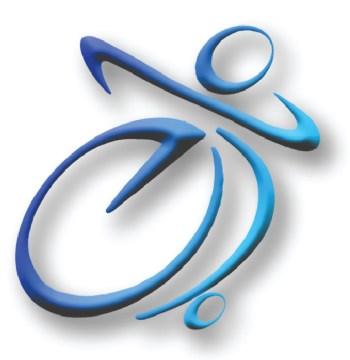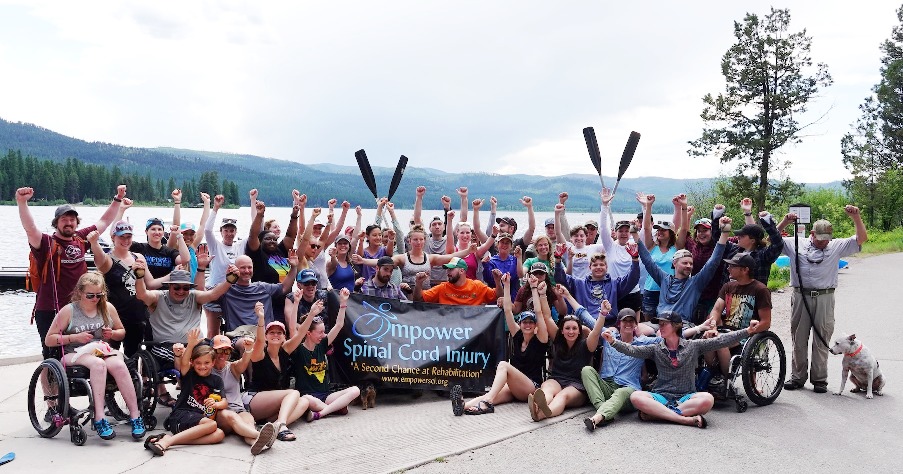Occupational therapist Elizabeth Lima Remillard and physical therapists Carinne Callahan and Jessica Goodine founded Empower Spinal Cord Injury in 2010 to help individuals who have experienced a spinal cord injury live happier, more meaningful, and more independent lives. Since 2012 they have offered a multi-week summer residential program that combines a holistic mix of physical and occupational therapy, counseling, peer mentoring, and adaptive recreation such as yoga, painting, cycling, kayaking, surfing, and dance for participants facing the challenge of life after a spinal cord injury.
“This very life altering injury can happen to anyone,” says Liz. “One day we’re here and we’re healthy, and another day we might be in a car accident and life changes drastically. Length of hospital stays and rehabs have declined and could be in the 30-day range for something so catastrophic. People think that if they get hurt there’s going to be health coverage and support for them when they return home, but that’s not how the industry works. If you don’t have a very supportive family and a very secure financial situation, you might be someone in your twenties who is living in a nursing home for a period of time. So how do you come back from that? Our program is about reinvesting in someone’s life so they don’t have to just survive the day to day, We all want to live every day that we have.”
“We try to make our program very intimate. We want people to have that family feel, that safe environment to get to know each other and be able to ask hard questions and talk about really difficult topics.”
The organization’s yearly two-week summer program on the campus of Stony Brook University brings together a dozen individual participants with more than 70 volunteers, including students and medical professionals. With a new one-week program for seven participants just piloted in 2019 at the University of Montana in Missoula, the organization is beginning to expand its services into new geographical areas. Over the past eight years, Empower SCI has served approximately 60 individuals and involved nearly 250 students from at least 10 colleges and universities. By the end of summer 2019 they will have run a total of nine residential programs.
“We try to make our program very intimate,” says Liz. “We want people to have that family feel, that safe environment to get to know each other and be able to ask hard questions and talk about really difficult topics.” Program volunteers include occupational therapists, physical therapists, nurses, massage therapists, a rehab counselor, peer mentors, and specialists in adaptive recreation. “We also include a lot of students every year,” Liz adds. “Because it’s a residential program, our participants and volunteers live side by side, so our students get to see what the 24-hour picture is really like. Students are very eager to understand, and an experience like this creates more opportunity for learning.”
The SEG Network Effect
Liz got connected to Social Enterprise Greenhouse through New England Institute of Technology, where she serves as Academic Fieldwork Coordinator for students in NEIT’s Occupational Therapy Department. Her department chair, Professor Carol Doehler, had enrolled in SEG’s Health & Wellness Accelerator in 2017 to develop a nonprofit called Therapy Missions.
“We’re all therapists. We’re business women now, but we were trained in a completely different skill set. SEG is invaluable because it is a resource for anything and everything that someone starting a business would need.”
“One of the reasons I was interested in getting involved with SEG was because we realized we had been a completely volunteer-run organization up until the past year, when we received a grant to help start up our Montana program,” says LIz. “We knew that, to be sustainable, we could no longer operate completely with volunteers. We’re very committed to what we’re doing, but time is finite, and with working other jobs you need some actual employees within the organization to move forward and grow and scale. But how do you do that in a very intentional way? A lot of the SEG coaching we got was focused on that.”
During SEG’s 2018 Health & Wellness Accelerator and guided by SEG coach Peter Hahn, Liz was able to master the budgeting process and a host of other business topics that gave her insight into how to move Empower SCI forward. “One of the things we talked about during the Accelerator was logic models,” she says. “That has been useful in grant writing over the last several months and was a tool we had never used. Peter helped with understanding the content of the modules that we were going through each week – the business model canvas and the value proposition and, if you only have a minute to talk to someone, how to drive your value home.”
Empower SCI has implemented a number of these takeaways, and more will come to fruition in the next few years as the nonprofit expands. Liz and her partners hired their first paid employee and are designating volunteers to take on more responsibility for program planning and data collection and analysis. The budget is growing.
“We’re all therapists,” Liz says. “We’re business women now, but we were trained in a completely different skill set. SEG is invaluable because it is a resource for anything and everything that someone starting a business would need.”


